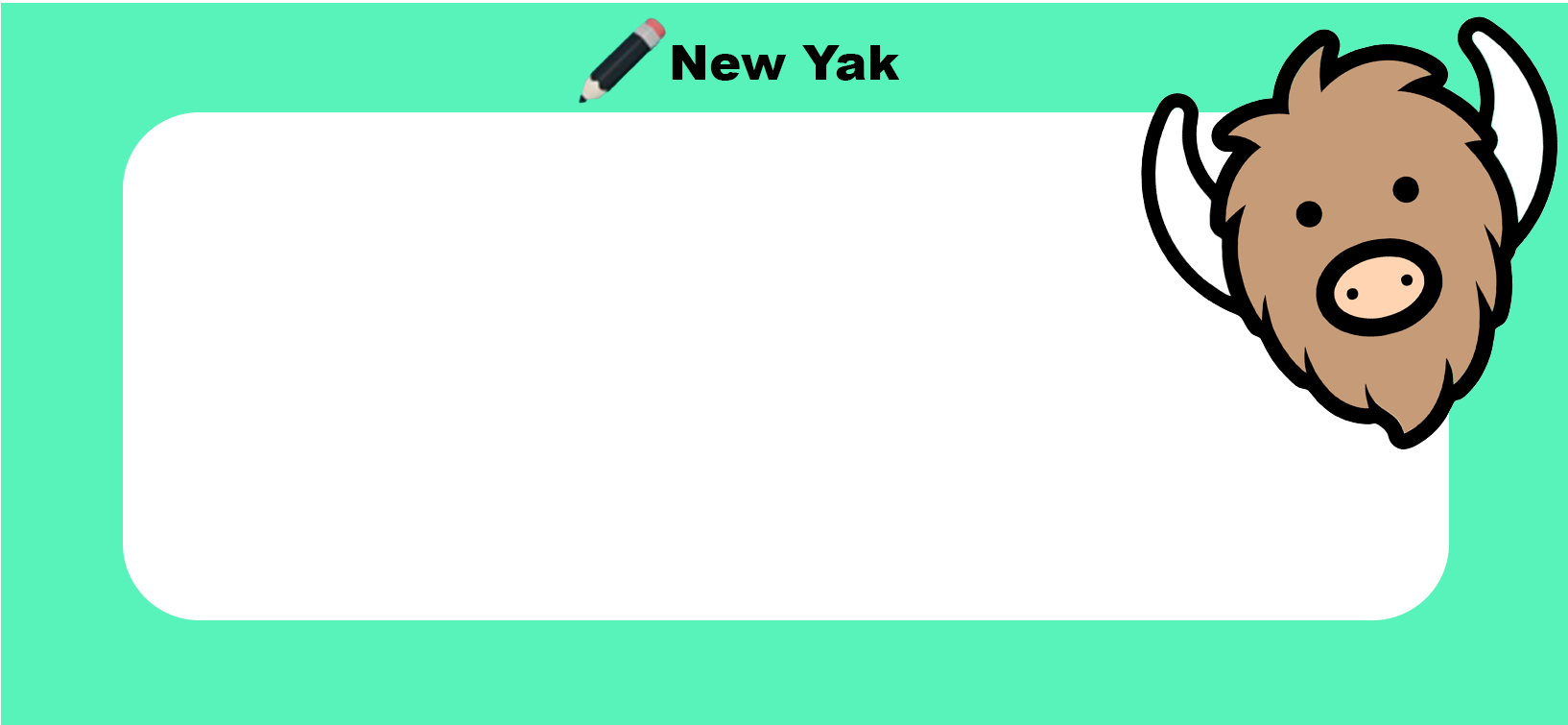A blank Yik waiting to be Yaked. Graphic by Rachel Brown.
REECE BUTLER | OPINION COLUMNIST | rmbutler@butler.edu
The reason for the 2017 YikYak ban is hard to place precisely. While some students remember racist comments, some are convinced the app became a place to ‘out’ members of the LGBTQIA+ community and others have recollections of a more generalized bullying epidemic fueled by the app.
Regardless of the primary reason for the ban, YikYak has historically brought out the worst in its users, which makes its return a fascinating topic — specifically when referring to YikYak’s statement on mental health resources. The app claims to center around normalizing honest conversations about mental health and creating a safe space for users to be authentic without attribution.
Although this mission certainly appears to be an admirable one, the actual content is a far cry from “normalizing mental health,” which begs the question— how seriously are YikYak moderators policing their regulations? According to Butler students, not very.
YikYak has numerous ‘guardrail’ restrictions of unacceptable content. When interviewing its users on campus, I focused on three categories of these ‘do nots’:
Identifying people— with the exception of ‘public figures’— and personal information
For this question, I consulted semi-sardonically self-proclaimed public figure Mike Butler, a senior marketing and finance major. In most cases of identification, Butler concluded that YikYak was fairly unresponsive when it came to taking down identifying posts that were not reported. However, as a main character in many YikYaks himself, he did notice that the frequency of a name made a significant difference in the promptness of their response.
“A lot of comments about me get taken down, because my name keeps coming up on there,” Butler said.
This was verified 30 minutes after my interview with him, when my own YikYak, which said “Mike Butler is a public figure,” was promptly removed.
To further illustrate YikYak’s enforcement of these policies, first-year sports media major Thomas Brown recounted an instance immediately following the re-release of YikYak, wherein a fellow football player’s name and phone number were posted and remained on the app for several days.
Bullying and harassment
Sophomore strategic communications major Abby Cashman explained that the enforcement of anti-bullying and harassment was a mixed bag.
“I’ve definitely heard of posts being taken down for that, as well as things like hate speech, but since the platform is so large a lot of it is missed,” Cashman said.
On the other hand, Butler emphasized how hard it was for objective moderators to filter out the intention of the post, and argued that overall, the app handled bullying and harassment to the best of its ability. After all, many of the more ‘negative’ posts are centered on locations, classes and inside jokes around the campus.
Trolling
Trolling is a fairly vague term, but the YikYak ‘guardrails’ offer some further clarification, defining trolling as posting “to intentionally instigate conflict, hostility, or arguments” or “with the primary objective of embarrassing, needlessly misleading, or enraging other people.”
And, thanks to the added explanation, the consensus of YikYak’s general inadequacy was the same across the board.
“That’s literally all the app is,” Brown said.
In all fairness, perhaps the reason that YikYak is so ambivalent about posts that clearly violate their ‘guardrails’ is because of community-policing measures like downvotes and the ability to report posts. For anyone fortunate enough to be unfamiliar with the app, each user has the ability to cast either a downvote — lowering the score of the post — or an upvote — adding to the score of the post — for each post within a 5 mile radius. When posts reach negative 5 votes, they are supposed to be taken down automatically; however, I personally have seen multiple posts with negative 5 votes or even lower, indicating that this is not an automatic process.
As for the reporting feature, users can submit an offensive YikYak to be reviewed by external moderators. Before doing so, users are required to indicate what they are reporting the post for by selecting a reason from a small list of potential rationales. And while this methodology is sufficient for some users, Cashman felt that it was a way for the app to avoid responsibility.
“I think if they expect to have a forum like this, they should have a team of executives scanning the content as they’re being posted, so that they can filter through everything that’s written and uphold those values that they say that they have,” Cashman said.
Butler went so far as to suggest that YikYak should require users to add context to their report and send out surveys where users could voice their complaints about the content they regularly see on the app. This system would potentially obligate YikYak to update its policing methods in response to its clientele.
However, despite the room for improvement, YikYak has gained popularity for many of the things that it claims to denounce. The app is considered to be so entertaining because of its irreverence and indifference — not in spite of it.
The most popular content tends to be exacerbated critiques of Greek life, negative and explicit remarks about Butler staff members and — above all else — miscellaneous nonsense. Although there are undoubtedly ethical drawbacks to a platform wherein accountability is obsolete, YikYak utilizes an inarguably well-performing business model — for now.
But considering the previous demise of the app’s identical predecessor, YikYak could be destined to repeat history, particularly if the same hate, misinformation and cyberbullying re-emerges in its new era. That being said, the fate of YikYak truly, and perhaps ironically, rests in the hands of the users its lackadaisical restrictions attract.
So, as much as I am eagerly anticipating the future of this resurrected platform, I cannot say I’m optimistic about its outcome. Nevertheless, I look forward to the possibility of being proven wrong.



